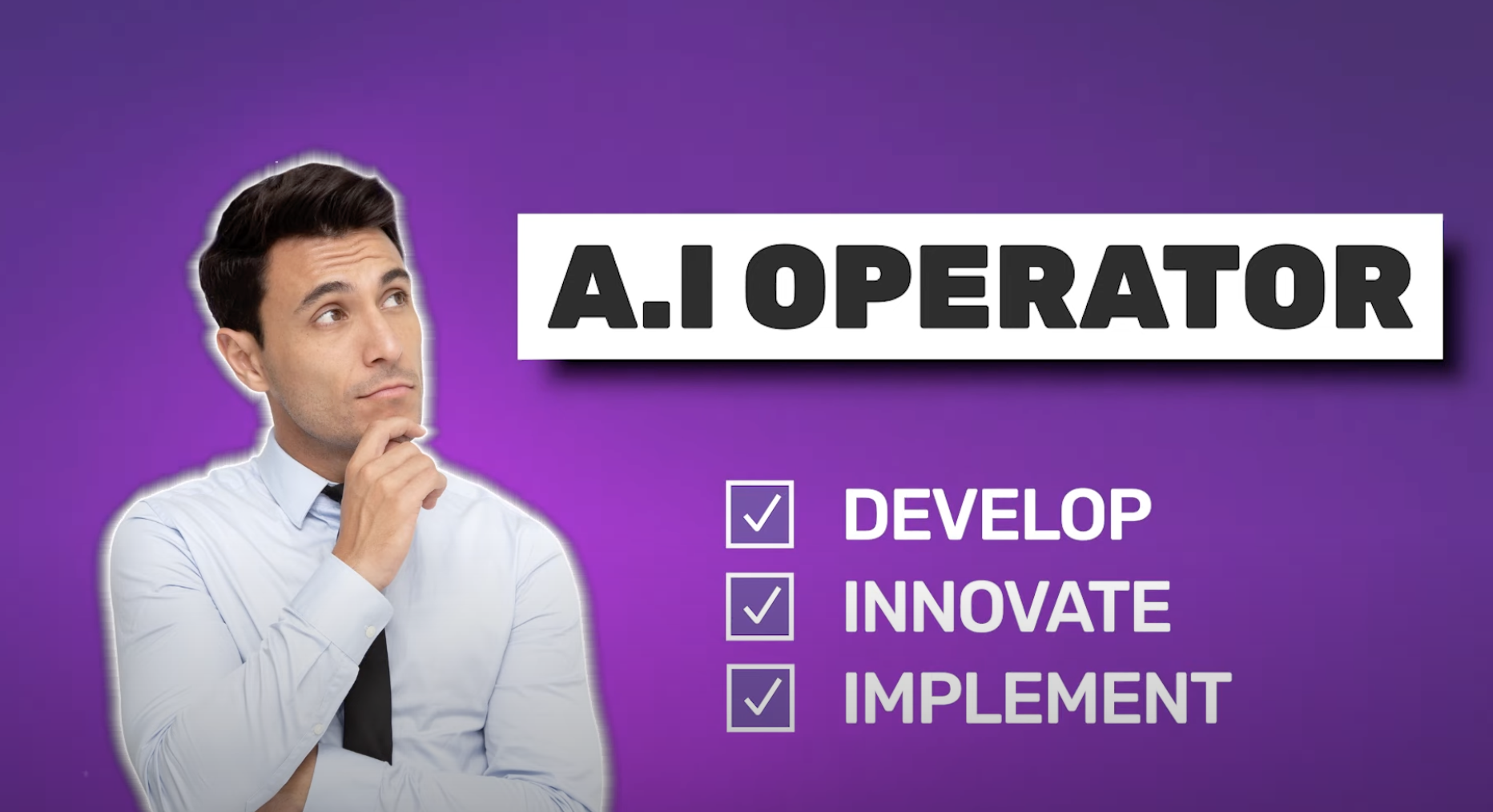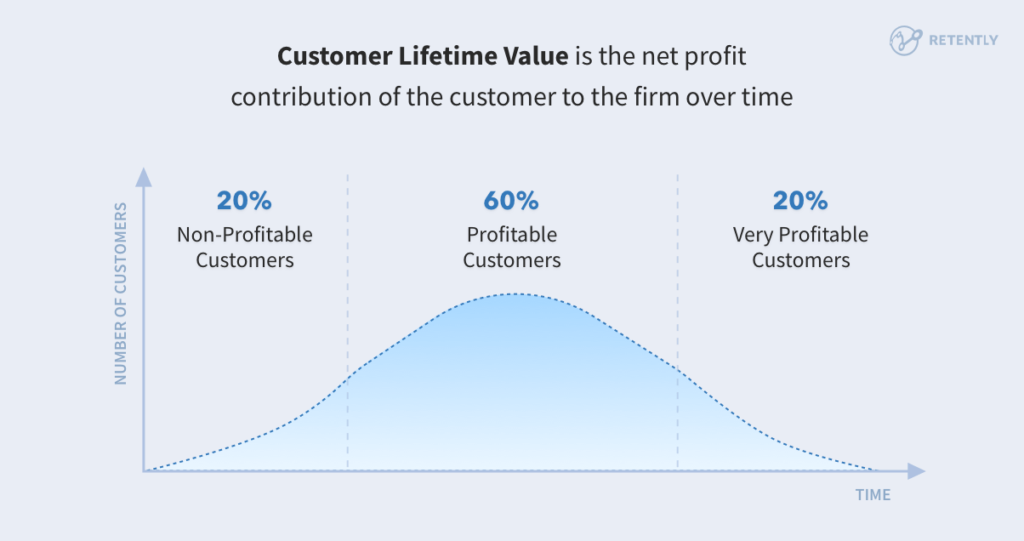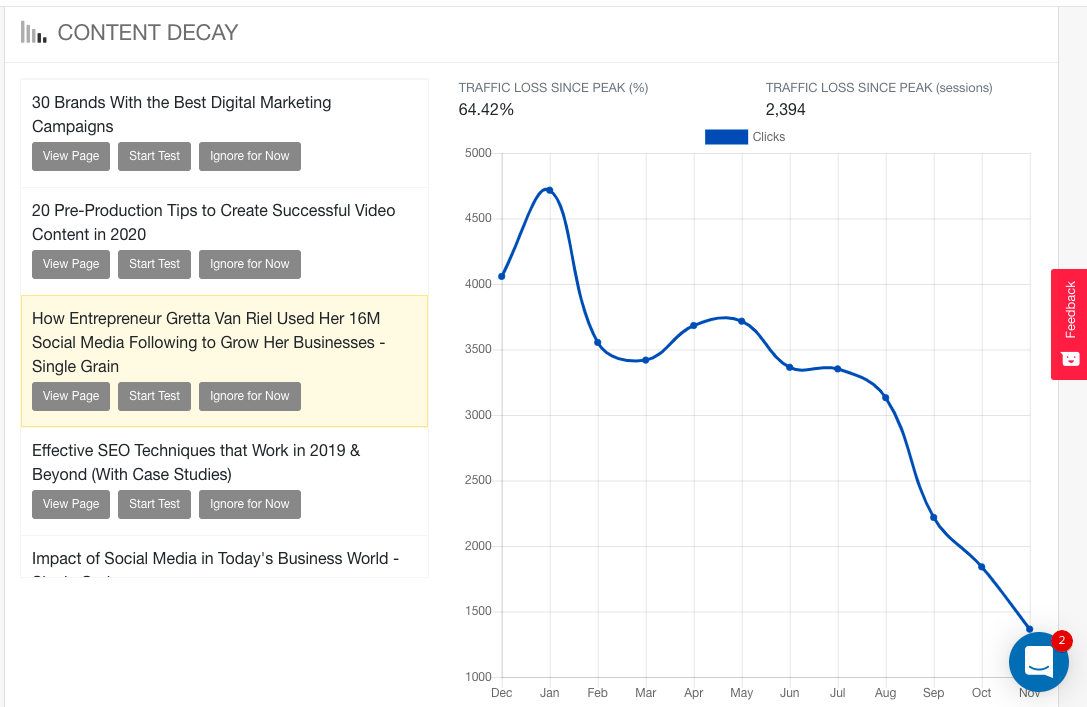Have you heard of the job position AI operations management?
When technology evolves so quickly, businesses must constantly seek ways to stay ahead of the curve. One of the most significant advancements that has the potential to revolutionize the way businesses operate is artificial intelligence.
Now, using AI is not new (anymore), but having AI operations management in every business is.
In this article, we’ll delve into the importance of hiring an AI operations manager and how it can be a game-changer for your business.
Why Every Business Should Hire an AI Operations Manager
The pace at which AI is advancing is nothing short of astonishing. With 24- to 48-hour news cycles highlighting groundbreaking innovations, it’s clear that AI tools and technology is not just a fleeting trend, but rather a transformative force.
For businesses, using AI is imperative to make sure they don’t fall behind.
While many business leaders are enthusiastic about diving into AI, the reality is that they have other responsibilities. From managing payroll to strategizing and extinguishing internal fires, their plates are full.
This is where an AI operations manager comes into play. Their primary role is to delve deep into various elements of a company and identify inefficiencies within the business.
For instance, in my ad agency, Single Grain, we have diverse teams: sales, marketing, finance, operations, etc.. The primary role of an AI operations manager is to identify inefficiencies across these teams and streamline processes using AI.
Take sales as an example. Traditional methods might involve a BDR (business development representative) having to make lead lists or craft outreach emails or change up the outreach headlines. Now, with tools like ChatGPT you’ve got the capability to generate unique insights for each lead automatically.
We actually have this implemented in our business right now. We’re constantly on the lookout for inefficiencies, always asking: Where can we save time and where can we save money?
How I Use AI with My Podcast Channels
In the realm of content creation and content repurposing, AI can be a huge time-saver.
For instance, transcriptions can be converted into blog posts easily. By allowing AI to handle 60-70% of the work, and then integrating a human touch for the final refinement, businesses can significantly boost their efficiency — potentially doubling or even tripling their output. Moreover, this approach can lead to substantial cost savings, perhaps by as much as 70-80% (depending on your particular use of AI).
Your business stands to gain immensely from this enhanced efficiency. But beyond just the numbers, it’s about harnessing a competitive edge in today’s fast-paced market.
And if you’re hesitant about hiring an AI specialist right now, consider dipping your toes into it by integrating some AI tools yourself. The insights and efficiencies you’ll uncover could be game-changing. And then you’ll have a better idea just how much an AI operations manager could help your business.
How Your Business Can Get the Edge by Using AI Operators
An AI operator’s role is multifaceted. They are responsible for developing, innovating, and implementing strategies:

They create playbooks tailored to your business to make sure you reap the maximum benefits from AI integration. The ultimate goal is to drive efficiency, whether it’s acquiring more leads, improving sales response rates or enhancing customer lifetime value:

If you get one more lead out of it, if you increase your response rate by 10 when it comes to sales, or you drive that one new idea that results in a higher lifetime value from that customer and then they tell someone else about it, your efficiency ratio goes up by A LOT.
So it’s on you right now to jump on this first before everyone does. This is one of those situations right now where you are going to have a significant advantage if you get the edge right now.
How to Hire the Best Person for the AI Operations Manager Role
Defining what you’re looking for in a job candidate is crucial. A common mistake many make is resorting to copying and pasting job descriptions they find online. It might be tempting, especially when a role like an “AI operator” or “AI manager” is relatively new and gaining traction from sources like YouTube videos.
However, it’s essential to tailor the job description to your company’s specific needs because every business is unique.
For instance, consider a software feature that identifies decaying traffic on a website:

How can this technology be integrated with tools like ChatGPT to introduce a one-click auto content upgrade? Such specific needs and innovations are unique to individual businesses, emphasizing the importance of a customized job description.
Before drafting the job description, start with a scorecard that outlines the role’s requirements and responsibilities. This approach ensures clarity for both the hiring team and potential candidates.
Here is an example of a job description you might use (again, make sure you create a customized job description):
AI Operations Manager
Role Overview: The AI Operations Manager will lead and oversee the integration and optimization of artificial intelligence technologies within our organization. This role requires a blend of technical expertise and strategic vision to drive efficiencies and innovation through AI.
Key Responsibilities:
- Evaluate, implement and manage AI tools and solutions tailored to the company’s needs.
- Collaborate with cross-functional teams to identify areas of improvement and implement AI-driven solutions.
- Monitor AI systems to ensure optimal performance and troubleshoot any issues.
- Stay updated with the latest AI trends and technologies so that the company remains at the forefront of AI advancements.
- Develop and maintain AI strategy and roadmap, aligning with the company’s broader goals.
- Train and mentor staff on AI tools and best practices.
Requirements:
- Bachelor’s degree in Computer Science, Data Science or related field. Master’s degree preferred.
- Proven experience in AI, machine learning or related areas.
- Strong analytical and problem-solving skills.
- Ability to work collaboratively with diverse teams.
- Excellent communication skills, both written and verbal.
- Familiarity with AI platforms and tools, such as TensorFlow, PyTorch or similar.
And though platforms like LinkedIn are great for posting job openings, remember that the most qualified candidates might not be actively looking. It’s essential to be proactive in your search and outreach for this relatively new role.
When interviewing potential candidates, look for those who have made impressive strides with AI. Their passion and knowledge should be evident. Remember, hiring the right person can be transformative, but a wrong hire can be costly.
Plus, for businesses keen on integrating AI, it’s essential to foster a culture of learning. Consider establishing an AI working group where your team members can share resources, wins and losses. This collaborative approach ensures that the entire organization benefits from the collective knowledge.
Last Word on Hiring for the AI Role
AI is not just a technological advancement; it’s a paradigm shift. Businesses that embrace it will thrive, while those that ignore it risk obsolescence.
As a leader, the onus is on you to champion AI and make sure your business remains at the forefront of innovation.
If you’re ready to level up your business with AI, Single Grain’s AI experts can help!👇
For more insights and lessons about marketing, check out our Leveling Up podcast on YouTube.



